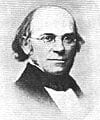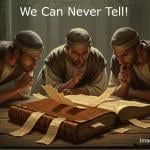 There is no use pretending otherwise; the called General Conference of the United Methodist Church, recently concluded in St. Louis, has been for many of us an unmitigated disaster. I had, it appears fatuously, hoped that the One Church Plan, that would have provided for a kind of local option when it came to matters swirling around the LGBTQIA community, might have received a positive vote during the conference, but instead the plan of choice was the Traditional one that does little more than toughen the public stance of my church against that community even more. Some of that plan has been shown to be unconstitutional, according to our church law, but whether it survives intact or in some altered form, the damage has been done. The UMC is once again publically on the wrong side of history, has once again announced its overt bigotry against some of God’s created people, and has hidden its narrow-mindedness behind a subterfuge of Bible belief and “correct” theology. This is more than a travesty; it is an unconscionable power grab and a slap in the faces of those of us who simply do not agree, both on biblical and theological grounds. I can see no future for us now but a broken one.
There is no use pretending otherwise; the called General Conference of the United Methodist Church, recently concluded in St. Louis, has been for many of us an unmitigated disaster. I had, it appears fatuously, hoped that the One Church Plan, that would have provided for a kind of local option when it came to matters swirling around the LGBTQIA community, might have received a positive vote during the conference, but instead the plan of choice was the Traditional one that does little more than toughen the public stance of my church against that community even more. Some of that plan has been shown to be unconstitutional, according to our church law, but whether it survives intact or in some altered form, the damage has been done. The UMC is once again publically on the wrong side of history, has once again announced its overt bigotry against some of God’s created people, and has hidden its narrow-mindedness behind a subterfuge of Bible belief and “correct” theology. This is more than a travesty; it is an unconscionable power grab and a slap in the faces of those of us who simply do not agree, both on biblical and theological grounds. I can see no future for us now but a broken one.
Because I now live in Southern California, the results of the conference will have little practical effect. The pastor of the church that I now attend said to me on our first day there, “If I did not perform same-sex weddings, I would have no credibility as a pastor in Los Angeles.” Exactly! Many of us in the Western Jurisdiction of the UMC will continue to reject the intolerance demonstrated in St. Louis, and will go on serving all the people of God as well as we are able. In effect, that makes us schismatic in the eyes of the majority at the conference. So be it! We follow our consciences, rooted in the Bible and thoughtful theological reflection, rather than a non-Methodist near-fundamentalism that appears to guide many of our Methodist colleagues.
I have been an ordained clergyperson for 50 years, the entire time of the existence of that pernicious phrase against homosexual people that dropped into our Book of Discipline in 1972. Seldom has one small series of words caused more genuine harm and pain to a group of people. The terrible thing that the recent conference has done to me personally is that I am now certain to die before my church publically joins the rest of American society and allows its clergy openly to perform same-sex weddings, as American national law says they can, in their sanctuaries, as well as before homosexual men and women will be ordained as clergy in the church. This is to me appalling, disgusting, and an egregious misrepresentation of the God I love and attempt to serve. One delegate to the conference, announcing his support of the Traditional Plan, claimed, “We can not have real unity based on sin.” By “sin” he meant the conviction that same- sex love is sinful. In that claim, he was thoroughly and completely in error; same-sex love is not in any way sinful; God has made these persons this way, and if they wish to express human love, it must be for them for a person of the same sex. Unfortunately, this delegate spoke a truth he did not intend. He is right; we cannot find a unity based in sin, but the sin he left unnamed was that sin of non-love, lack of charity, hatred of some of God’s people because of who they love. Indeed, there can be no unity rooted in such anger and hatred.
Though I now will never see the day in the UMC I hoped and prayed to see, I find a possible long-term hope in the history of our American church. This is hardly the first time that we have found ourselves divided over a social issue, so divided as to be unable to worship with one another. That issue was African slavery, and it split the Methodists just as surely as this recent conference threatens to do. Here are a few of the facts of that painful time. From the very beginnings of the Methodist movement in America, the question of slavery was a contentious one. Early in the 19th century, as abolitionist activity was growing, successive General Conferences on the church inveighed against slavery as evil, demanding that any who held slaves be denied communion and be shunned by their local churches. But slowly, the economic realities took the upper hand, and, because the south was built primarily on cotton and the African slaves who picked it, the church began to hedge its bets.
In 1844, Bishop Andrew of Georgia remarried, and his new wife brought into the marriage several slaves. Andrew had already owned slaves, but had said that they could return to Africa, if they chose, or would be freed, at least as far as the laws of Georgia allowed. Many in the national church found it scandalous that a general superintendent of the church, a Bishop, should be a slave owner. So in the longest General Conference in Methodist history, lasting six weeks, the church tried in several ways to deal with Andrew’s ownership of slaves. They debated the question for 12 full days. He was asked to resign as long as the slaves were in his possession, but many in the south said that if he did, the entire institution of slavery would be suspect, so urged him to remain in his office. He decided to do that.
Then in 1845 in a southern-led conference, articles of separation were drawn to divide the Methodist Episcopal Church between northern and southern branches. The division remained for the next 94 years, until the two churches reunited in 1939. The debates during that extraordinary 1844 conference revolved around the Bible and theology, with of course economics playing a powerful if more subtle hand, with persons on both sides of the slavery question claiming biblical warrant for their belief. “Slaves are cursed to be slaves forever” (the horrifying use of Gen.10, the so-called curse of Cain); “All are God’s people, made in the image and likeness of God.” Passions were high, but in the end an entire race of human beings was rejected as unworthy and unequal. Our racial divide in this country after all these years remains painful and all too real. Yet, the church finally came at least partially to its senses and found that slavery was indeed what the founder, John Wesley, had said it was in the 17th century: “The greatest evil in the sight of this sun.” A terrible wrong had been recognized and publically repudiated. But the damage was vast and appalling.
Must we now wait 94 more years for the church to admit that it is woefully wrong about an entire group of people? The United Methodist Church now can claim neither to be united, nor to be much of a church when it has condemned some of God’s beloved children to second-class status in a realm of God that has no such levels of acceptability; if all are not welcome, then it cannot represent the gospel of God. I am today embarrassed and ashamed to call myself a clergy member of the United Methodist Church, and I grieve not only for my LGBTQIA colleagues but also for all pastors who must perform their duties in a church that is plainly not characterized by “open doors” or “open hearts.” If the gospel is not for all, it is not the gospel. It may be time to find our way into a truly United Church where all are welcome without restriction. How such a community would look, and what relationship it might bear to the UMC, I cannot hazard a guess. I only know now that the UMC has today shattered, and it may take 100 years to find a way to rejoin the pieces. Still, I can hope that as with the question of slavery, the church may finally in some distant time, realize that its treatment of homosexual, intersexual, and bisexual persons was a monstrous injustice, and repudiate the actions it has perpetrated against them. It always pays to take the long view, lest one live in perpetual disappointment and despair. Though we would wish the arc of history were shorter, it is always long, but it bends toward justice. And the fact that the ardent and unyielding abolitionist, one thoroughly opposed to slavery, Theodore Parker, is the source of that quotation in the mid-19th century, gives me all the more hope.
(Images from Wikimedia Commons)











